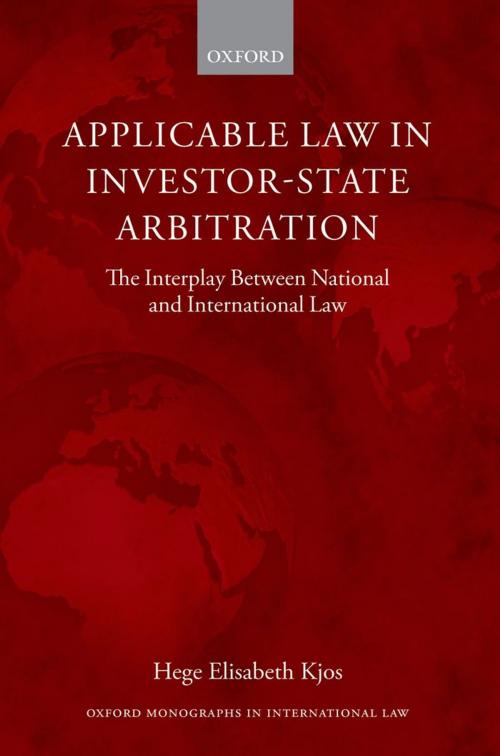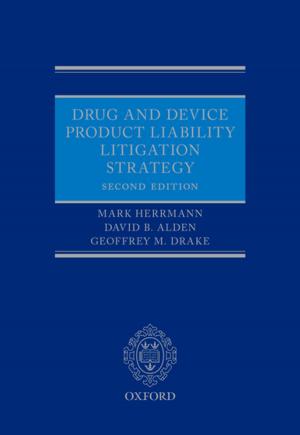Applicable Law in Investor-State Arbitration
The Interplay Between National and International Law
Nonfiction, Reference & Language, Law, Arbitration, Negotiation, & Mediation, Commercial| Author: | Hege Elisabeth Kjos | ISBN: | 9780191641169 |
| Publisher: | OUP Oxford | Publication: | March 21, 2013 |
| Imprint: | OUP Oxford | Language: | English |
| Author: | Hege Elisabeth Kjos |
| ISBN: | 9780191641169 |
| Publisher: | OUP Oxford |
| Publication: | March 21, 2013 |
| Imprint: | OUP Oxford |
| Language: | English |
This is an open access title available under the terms of a CC BY-NC-ND 3.0 International licence. It is free to read at Oxford Scholarship Online and offered as a free PDF download from OUP and selected open access locations. This book examines the law, national and/or international, that arbitral tribunals apply on the merits to settle disputes between foreign investors and host states. In light of the freedom that the disputing parties and the arbitrators have when designating the applicable law, and because of the hybrid nature of legal relationship between investors and states, there is significant interplay between the national and the international legal order in investor-state arbitration. The book contains a comprehensive analysis of the relevant jurisprudence, legal instruments, and scholarship surrounding arbitral practice with respect to the application of national law and international law. It investigates the awards in which tribunals referred to consistency between the legal orders, and suggests alternatives to the traditional doctrines of monism and dualism to explain the relationship between the national and the international legal order. The book also addresses the territorialized or internationalized nature of the tribunals; relevant choice-of-law rules and methodologies; and the scope of the arbitration agreement, including the possibility of host states presenting counterclaims in investment treaty arbitration. Ultimately, it argues that in investor-state arbitration, national and international law do not only coexist but may be applied simultaneously; they are also interdependent, each complementing and informing the other both indirectly and directly for a larger common good: enforcement of rights and obligations regardless of their national or international origin.
This is an open access title available under the terms of a CC BY-NC-ND 3.0 International licence. It is free to read at Oxford Scholarship Online and offered as a free PDF download from OUP and selected open access locations. This book examines the law, national and/or international, that arbitral tribunals apply on the merits to settle disputes between foreign investors and host states. In light of the freedom that the disputing parties and the arbitrators have when designating the applicable law, and because of the hybrid nature of legal relationship between investors and states, there is significant interplay between the national and the international legal order in investor-state arbitration. The book contains a comprehensive analysis of the relevant jurisprudence, legal instruments, and scholarship surrounding arbitral practice with respect to the application of national law and international law. It investigates the awards in which tribunals referred to consistency between the legal orders, and suggests alternatives to the traditional doctrines of monism and dualism to explain the relationship between the national and the international legal order. The book also addresses the territorialized or internationalized nature of the tribunals; relevant choice-of-law rules and methodologies; and the scope of the arbitration agreement, including the possibility of host states presenting counterclaims in investment treaty arbitration. Ultimately, it argues that in investor-state arbitration, national and international law do not only coexist but may be applied simultaneously; they are also interdependent, each complementing and informing the other both indirectly and directly for a larger common good: enforcement of rights and obligations regardless of their national or international origin.















